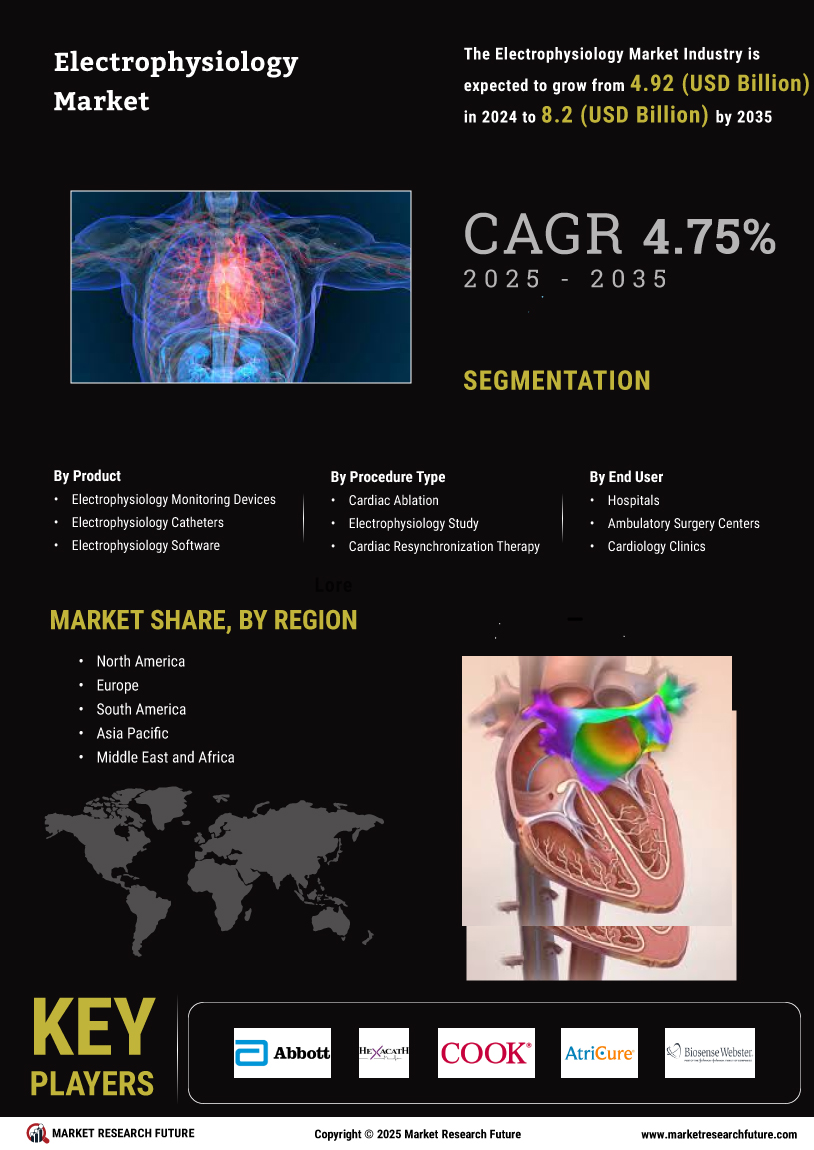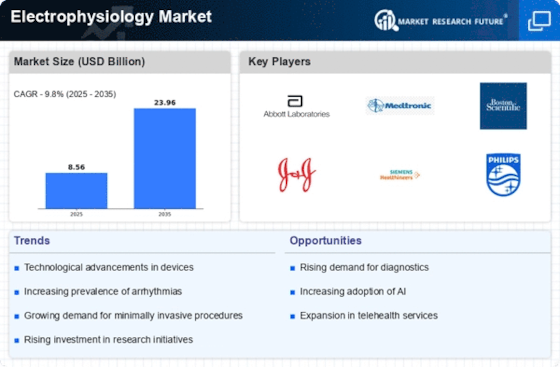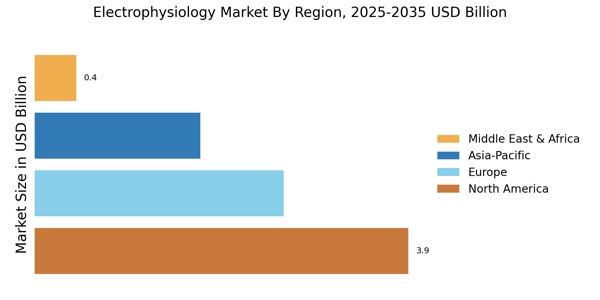Focus on Personalized Medicine
The shift towards personalized medicine is significantly influencing the Electrophysiology Market. Tailoring treatments to individual patient profiles enhances the efficacy of interventions, particularly in electrophysiology, where variations in cardiac anatomy and function can impact outcomes. The development of patient-specific mapping techniques and ablation strategies is gaining traction, allowing for more effective management of arrhythmias. Market data indicates that personalized approaches could lead to a reduction in recurrence rates of atrial fibrillation by up to 30%. This trend not only improves patient satisfaction but also drives the demand for advanced electrophysiology solutions, positioning the industry for sustained growth.
Rising Prevalence of Cardiac Disorders
The increasing incidence of cardiac disorders is a primary driver for the Electrophysiology Market. Conditions such as atrial fibrillation and ventricular tachycardia are becoming more prevalent, largely due to aging populations and lifestyle factors. Recent statistics suggest that atrial fibrillation affects around 33 million people worldwide, creating a substantial demand for electrophysiological interventions. This surge in patient numbers necessitates advanced diagnostic and treatment options, thereby propelling market growth. As healthcare systems strive to manage these conditions effectively, the demand for electrophysiology devices and services is likely to escalate, further solidifying the industry's position in the healthcare landscape.
Technological Advancements in Electrophysiology
The Electrophysiology Market is experiencing rapid technological advancements that enhance diagnostic and therapeutic capabilities. Innovations such as 3D mapping systems and advanced catheter technologies are revolutionizing procedures, allowing for more precise interventions. For instance, the introduction of robotic-assisted systems has improved the accuracy of catheter placements, thereby reducing procedural risks. According to recent data, the electrophysiology devices segment is projected to grow at a CAGR of approximately 10% over the next five years, driven by these technological innovations. Furthermore, the integration of artificial intelligence in electrophysiology is expected to streamline workflows and improve patient outcomes, indicating a promising future for the industry.
Rising Awareness and Education on Cardiac Health
The growing awareness and education regarding cardiac health are pivotal in driving the Electrophysiology Market. Public health campaigns and educational initiatives are informing patients about the risks associated with cardiac disorders and the importance of early diagnosis and treatment. This heightened awareness is leading to increased patient engagement and a proactive approach to managing heart health. Data suggests that regions with robust educational programs have seen a 20% increase in electrophysiology consultations. As patients become more informed about their options, the demand for electrophysiological assessments and interventions is likely to rise, further propelling market growth.
Increasing Investment in Healthcare Infrastructure
Investment in healthcare infrastructure is a crucial driver for the Electrophysiology Market. Governments and private entities are allocating substantial resources to enhance healthcare facilities, particularly in cardiology departments. This investment is aimed at upgrading existing technologies and expanding access to electrophysiological services. For example, the establishment of specialized electrophysiology labs is on the rise, facilitating advanced procedures and improving patient care. Recent reports indicate that healthcare spending is expected to increase by 5% annually, which will likely benefit the electrophysiology sector. As facilities become more equipped to handle complex cardiac cases, the demand for electrophysiology devices and services is anticipated to grow.

















